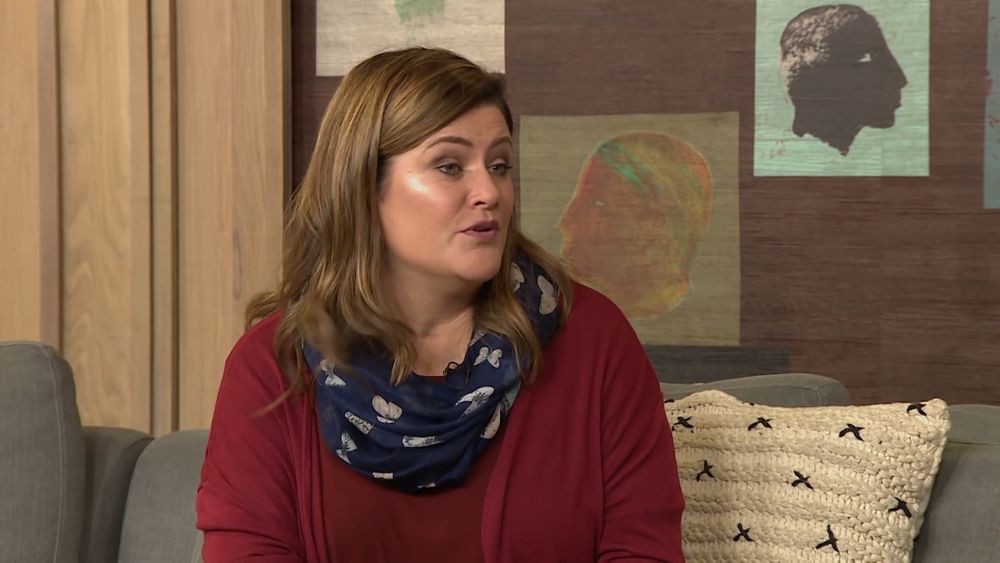Alison Botha - A Story Of Unyielding Strength
There are stories that truly stick with you, moments of human spirit that shine through the darkest of times. One such account, which has touched countless people, tells of a remarkable woman from South Africa whose ability to overcome unimaginable hardship stands as a powerful reminder of resilience. This particular narrative, in a way, really shows what someone can endure and still find a path forward.
Her experience, quite frankly, is one that has prompted many to ponder how a person could possibly survive such grave circumstances. It's the kind of story that, for some, just keeps them awake at night, sparking questions about the very limits of human endurance. We hear about incredible events, and yet, this one feels different, perhaps because it speaks so directly to the sheer will to live, even when facing things no one should ever have to.
This article aims to share a bit about Alison Botha, a woman whose life took a sudden, terrible turn, yet whose journey afterward has become a source of true inspiration. It covers some personal details about her, what happened, and how she managed to survive and then live beyond such a profound ordeal. We will, you know, explore how her story has come to mean so much to so many, and what it might say about the strength we all carry, sometimes without even knowing it.
Table of Contents
- Biography
- What Happened to Alison Botha?
- How Did Alison Botha Endure Such Horrors?
- What Became of the Attackers?
- How Has Alison Botha's Story Impacted Others?
- The Long Road to Healing for Alison Botha
- A Look at the Film "Alison"
- Why Does Alison Botha's Survival Resonate So Deeply?
Biography
Alison Botha came into the world on September 22, 1967, in a place called Port Elizabeth, which is in South Africa. Her early years, you know, held some changes, as her parents decided to go their separate ways when she was about ten years old. After that, she spent a good part of her growing-up years living alongside her mother, which is a pretty common experience for many children whose parents divorce.
She also had a brother, and they grew up together in Port Elizabeth. It seems, too, she was a bright and engaged student. As a young woman, she attended the Collegiate High School for Girls, where she was given the significant role of head girl. This kind of position, quite frankly, suggests she was someone who showed leadership and was well-regarded by her peers and teachers, even at that age.
Early Life of Alison Botha
Here are some personal details about Alison Botha's early life:
| Name | Alison Botha |
| Born | September 22, 1967 |
| Birthplace | Port Elizabeth, South Africa |
| Parents' Status | Divorced when she was 10 |
| Childhood Home | Lived with mother |
| Education | Head girl at Collegiate High School for Girls |
What Happened to Alison Botha?
The events that took place on December 18, 1994, were truly horrifying. Alison Botha was, as a matter of fact, taken against her will very close to where she lived in South Africa. What followed was an attack of incredible brutality, something almost beyond belief for anyone to endure. She suffered many, many injuries during this terrible ordeal, which is just so hard to think about.
Reports say she was wounded with a knife thirty times and had sixteen slashes across her throat. Then, later accounts mentioned thirty-seven stabs in her middle section and seventeen cuts to her throat, which, honestly, just shows the sheer number of injuries. It’s a detail that, you know, really emphasizes the severity of what she went through. Her attackers were two individuals named Du Toit and Kruger, who, it turned out, had a history that the prosecutor apparently wasn't aware of at the time.
The Attack on Alison Botha
During the attack on Alison Botha, she was not only severely hurt but also, in a way, almost lost her head completely. Despite these terrible injuries, she somehow managed to stay aware of what was happening. She had to use one of her hands to hold her head, which was nearly separated from her body. This detail, quite frankly, is one of the most astonishing parts of her story, just showing an incredible presence of mind in the most dire of situations.
The description of her trying to walk afterward, with her head falling back because of the injuries, is a very stark reminder of the physical damage she sustained. It paints a picture of extreme pain and a struggle for basic movement. This part of her experience, too, really highlights the depth of the trauma she faced, both physically and emotionally, as she tried to make her way to safety after being left for dead.
How Did Alison Botha Endure Such Horrors?
Many people, upon hearing Alison Botha's story, just find themselves asking the same question: how could anyone survive something like that? The sheer number of wounds, particularly to her throat and abdomen, is, you know, truly staggering. It's the kind of information that, for some, genuinely keeps them awake at night, trying to grasp the concept of such immense suffering and then, somehow, living through it.
It's honestly very hard to comprehend how a human being could possibly endure so many serious injuries and still be alive. The fact that none of the many stab wounds hit any major blood vessels was, in some respects, a crucial factor, preventing her from bleeding out quickly. This detail, in a way, points to an almost unbelievable stroke of fortune amidst such a terrible ordeal, allowing her body to keep going when it seemed impossible.
Alison Botha's Incredible Will to Live
Alison Botha's survival is, quite simply, something that inspires awe. It’s not just the physical survival itself, but the inner strength she must have possessed to keep going. The heartache she must have gone through afterward, you know, is something most people cannot even begin to imagine. Her ability to remain conscious and hold her head in place speaks volumes about a profound will to live, even when faced with what seemed like the end.
Her determination to survive, even in such a dire state, is what truly sets her story apart. It shows a powerful human instinct to cling to life, even when the body is, apparently, on the brink of giving up. This inner fire, really, is what makes her journey so compelling and why it continues to resonate with so many people who hear about it, reminding them of the power of the human spirit.
What Became of the Attackers?
The two men responsible for the attack on Alison Botha, Du Toit and Kruger, were brought before the law. In the year 1995, a judge in the Pretoria High Court, Chris Jansen, handed down sentences to these men. They were given life sentences, which meant they would not have the chance to be released from prison on parole. This decision, in a way, was a significant moment for justice.
The judge, it seems, felt a strong need to make it very clear that these individuals posed a significant danger to society. His words, "I needed to make it clear they were a threat to society," reflect a determination to protect others from similar harm. This legal outcome, you know, provided a measure of closure, ensuring that those who committed such a terrible act would be held accountable for their actions for a very long time.
Justice for Alison Botha
The severity of the attack on Alison Botha, which was just so brutal, played a big part in the sentencing of her attackers. There's also the fact that these men, apparently, had a history of similar actions; Alison was not, in fact, their first or only victim. This history, you know, really solidified the view that they were a serious and ongoing danger to others, which is a truly frightening thought.
Given the extreme nature of the violence and their past actions, it's pretty clear that the chances of either of the individuals responsible for the attack on Alison Botha ever being released from prison are, frankly, very slim. The sentences handed down reflect a strong societal need to keep such dangerous people away from the public, providing a measure of safety and, in some respects, a form of justice for what happened.
How Has Alison Botha's Story Impacted Others?
Alison Botha's story of survival is, for many, a source of deep personal inspiration. It’s not just the events of December 18, 1994, that resonate, but also the years that followed, her journey of recovery. People who have looked into her experience, you know, often find themselves truly moved by her ability to come back from such a devastating ordeal, which is quite remarkable.
The way her story has affected people is, in a way, quite profound. It speaks to a resilience that many hope they would possess if ever faced with such extreme adversity. Her continued life and her willingness to share what happened have, arguably, helped others find strength in their own difficult moments, which is a powerful thing to witness.
The Enduring Inspiration of Alison Botha
The story of Alison Botha, the woman who survived being subjected to such horrific violence, has, you know, truly left a lasting impression on many. It's a narrative that gets passed around, prompting conversations about human strength and the capacity for healing. The fact that she endured so much and yet continued on with her life is, frankly, a powerful message for anyone facing their own struggles.
Her experience has, in fact, become a symbol for many, showing that even after unimaginable pain, there can be a path forward. The way people talk about her survival, how it "inspires me," points to the deep emotional connection others feel to her journey. It’s a story that, pretty much, reminds us all of the extraordinary courage that can reside within a person, even in the darkest of times.
The Long Road to Healing for Alison Botha
The physical and emotional healing for Alison Botha was, you know, undoubtedly a very long and difficult process. Surviving such severe injuries, including those to her throat and middle section, would mean months, if not years, of medical care and personal recovery. The sheer number of wounds she sustained meant that her body had to undertake an immense task of repair, which is just so hard to imagine.
Beyond the physical wounds, the emotional scars from such a traumatic event would also require a deep and ongoing process of healing. The text mentions the "heartache she went through," which is a simple phrase that, frankly, covers an enormous amount of pain and struggle. Her recovery years, as the text points out, are as significant as the date of the attack itself, showing that survival is just the first step in a much longer journey toward rebuilding a life.
A Look at the Film "Alison"
The profound nature of Alison Botha's story led to it being captured in a documentary film called "Alison." This film, you know, offers a visual account of her experience, allowing more people to understand the gravity of what happened and her subsequent journey. When one person told a friend about the case, the friend asked if there was a film, and they found it and watched it, which just shows the interest her story generates.
The film, it seems, includes moments that are incredibly difficult to watch, such as when Alison tries to walk and her head, due to her injuries, falls back. This particular scene, pretty much, highlights the raw and brutal reality of her physical state immediately after the attack. The existence of such a film means her story can reach an even wider audience, ensuring that her experience and her incredible strength are not forgotten.
Why Does Alison Botha's Survival Resonate So Deeply?
The story of Alison Botha, the woman who survived being subjected to such extreme violence, truly resonates with people for a variety of reasons. It challenges our very ideas of what a human body and spirit can endure. The questions posed in the text, "How did Alison Botha survive?" and "How can someone survive all those injuries?", are, you know, ones that echo in the minds of many who hear her tale.
Her ability to cling to life, even while holding her nearly severed head, is a detail that, frankly, almost defies belief and yet is a testament to an extraordinary will. This account, in a way, forces us to confront the darkest aspects of human behavior while simultaneously showcasing the incredible, almost unbelievable, capacity for survival and recovery. It is a powerful reminder of both vulnerability and profound strength, which is why it continues to be discussed and remembered.
This article has shared details about Alison Botha, from her early life and the devastating attack she endured, to her remarkable survival and the legal outcome for her attackers. It has explored the profound inspiration her story offers and touched on the long process of her recovery, as well as the documentary film that brings her experience to a wider audience.

How Alison Botha Survived A Brutal Attack By The 'Ripper Rapists'

How Alison Botha Survived A Brutal Attack By The 'Ripper Rapists'

Alison Botha story: She survived 54 stab wounds to the neck and abdomen